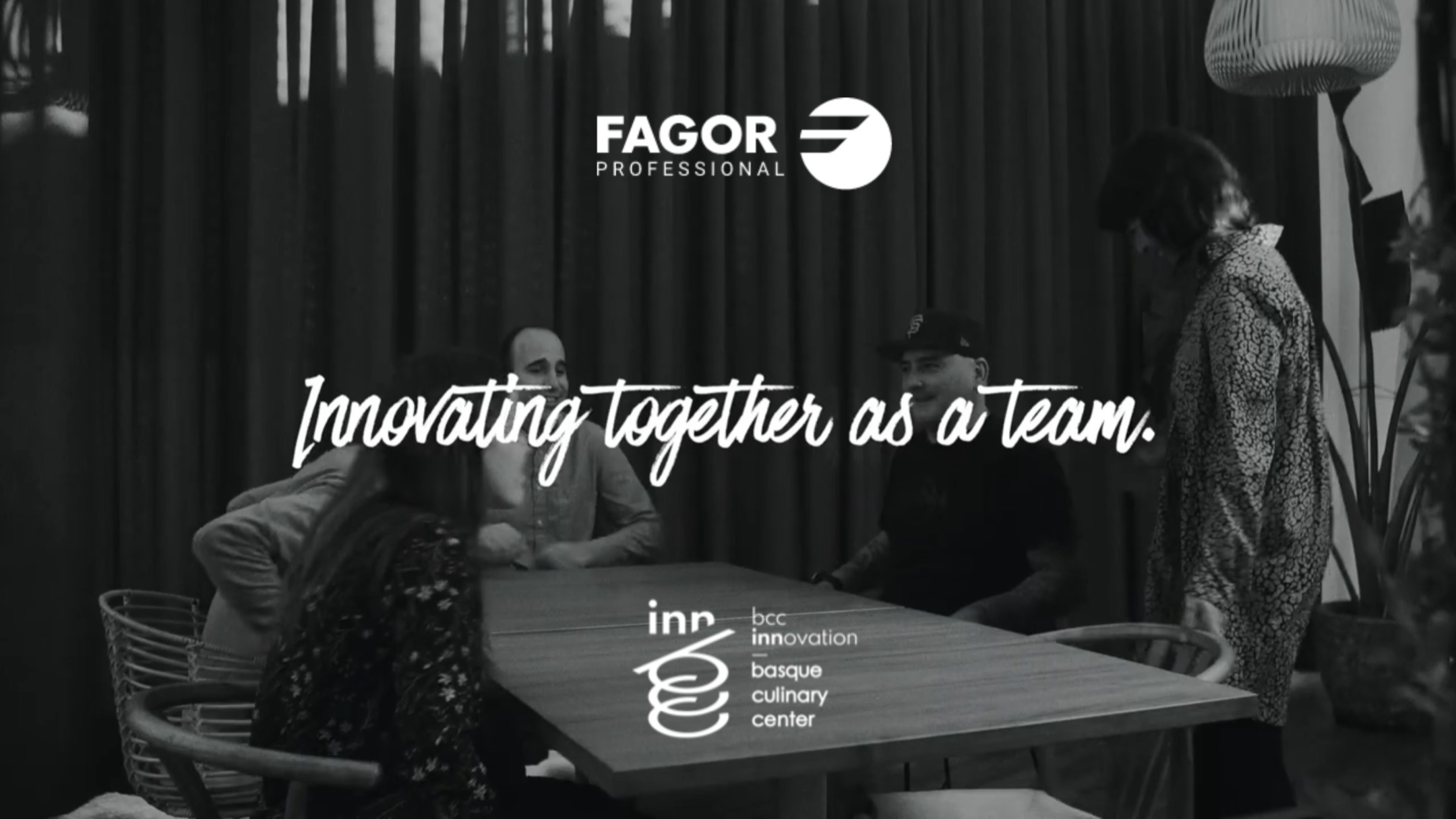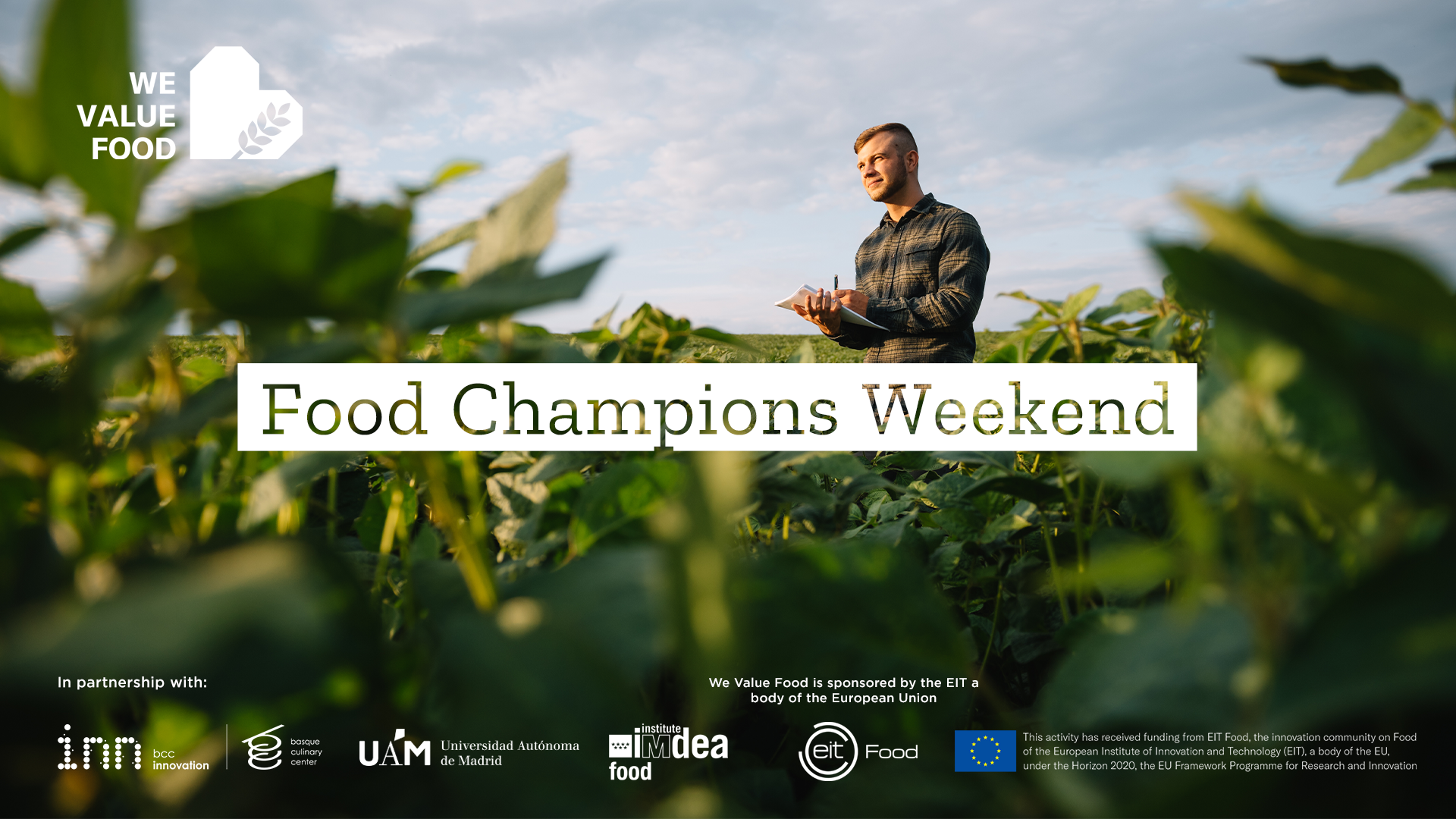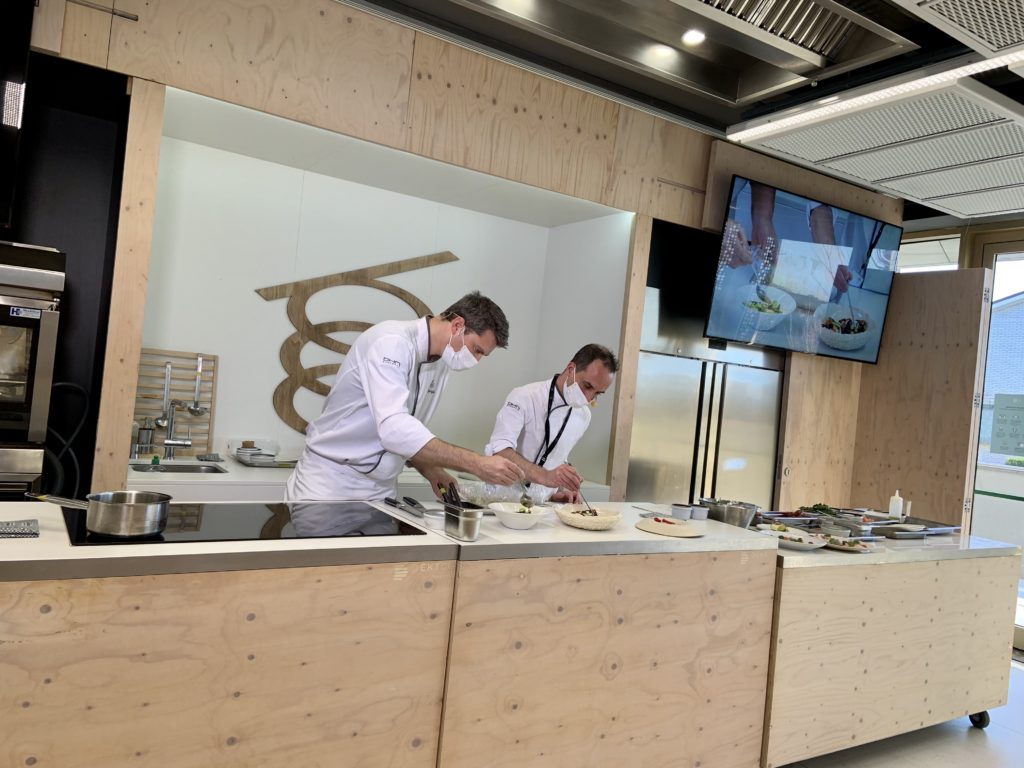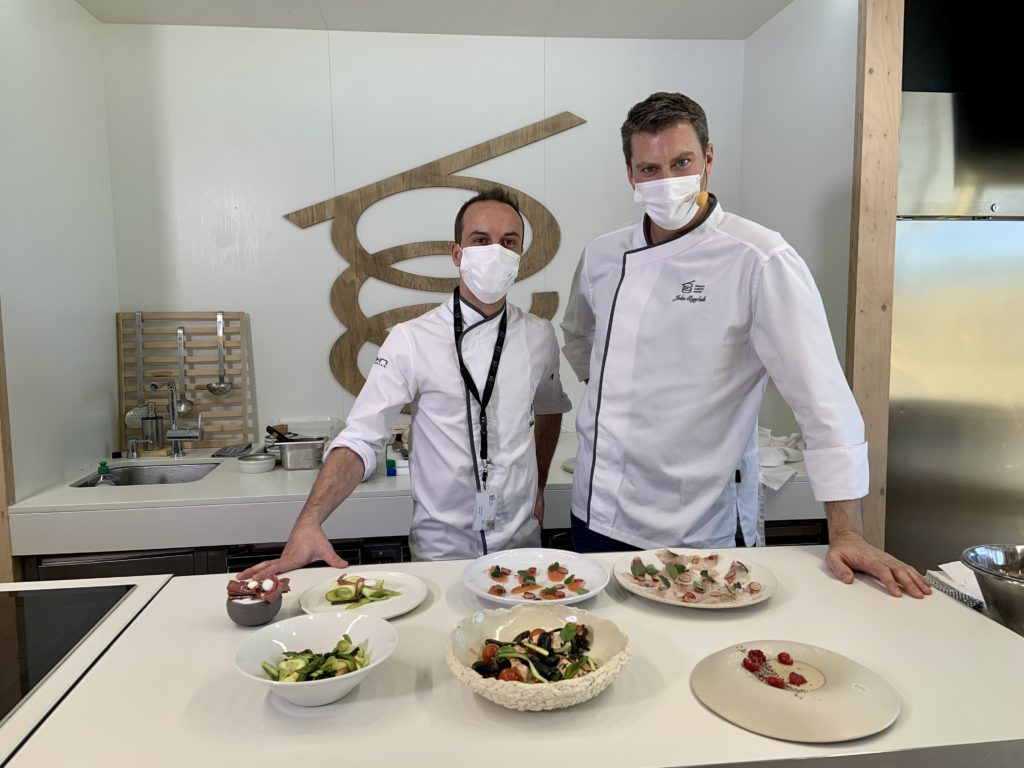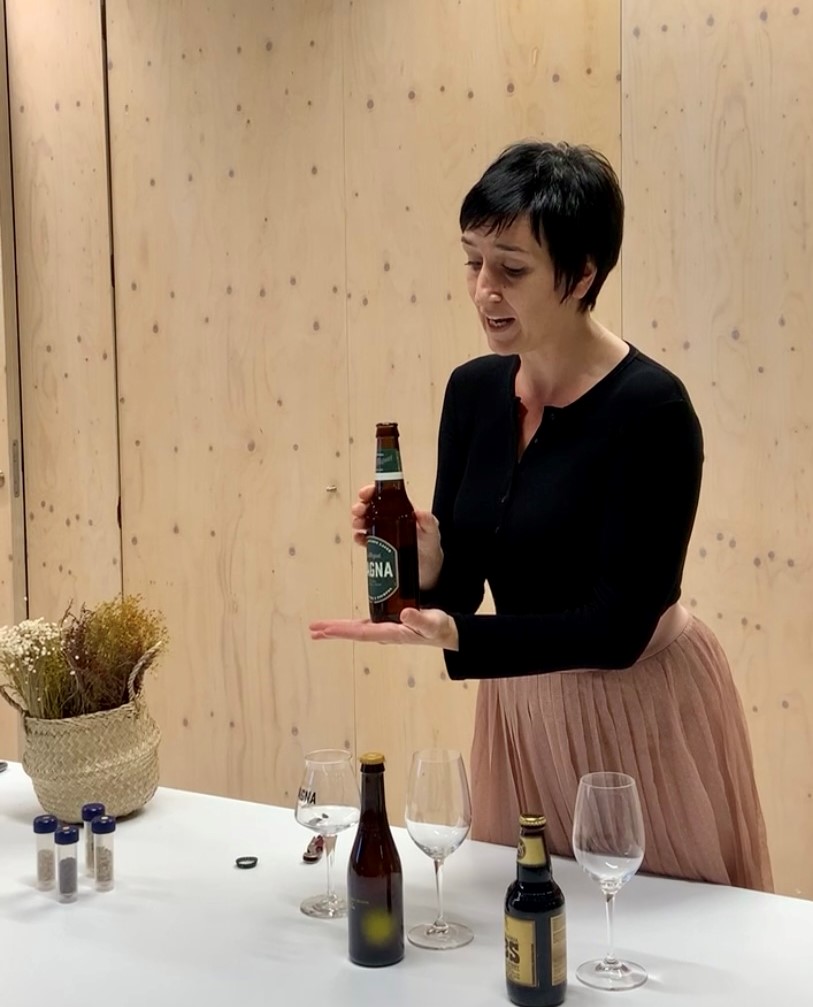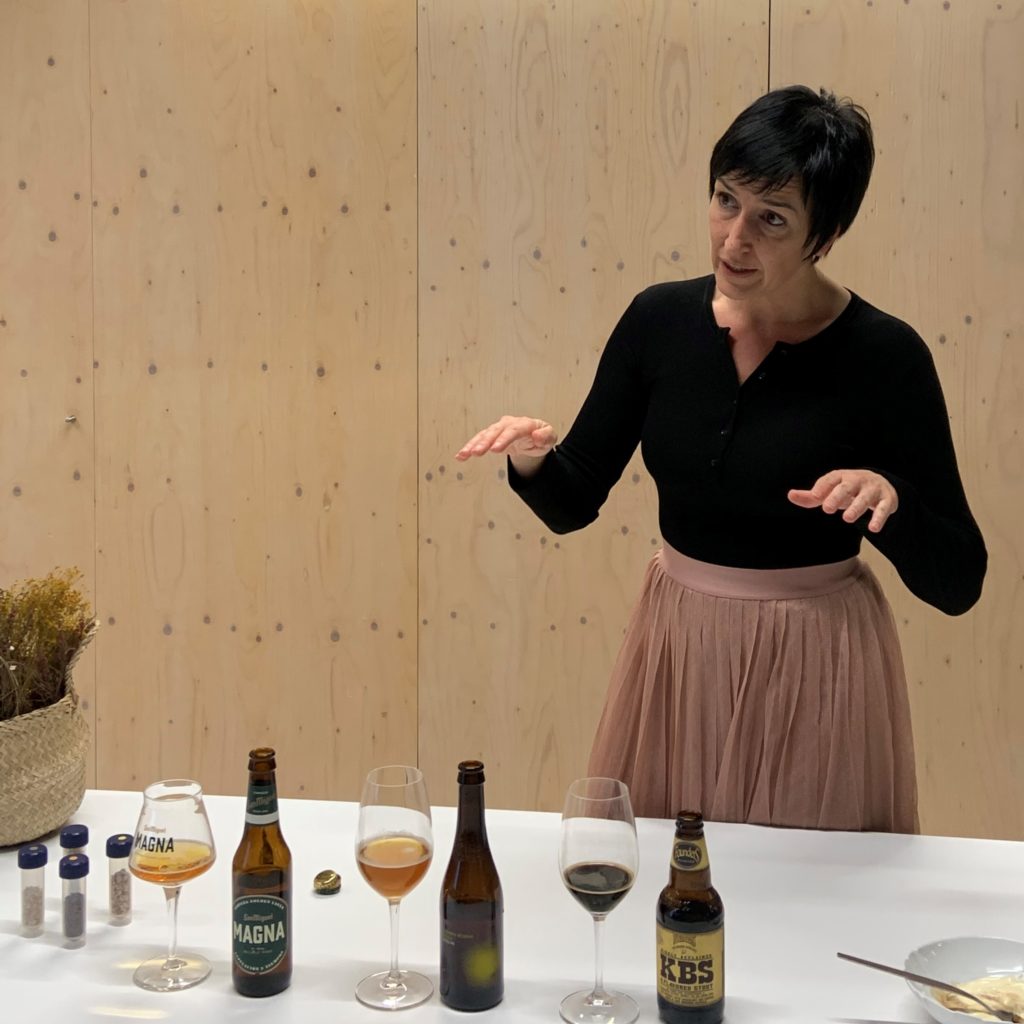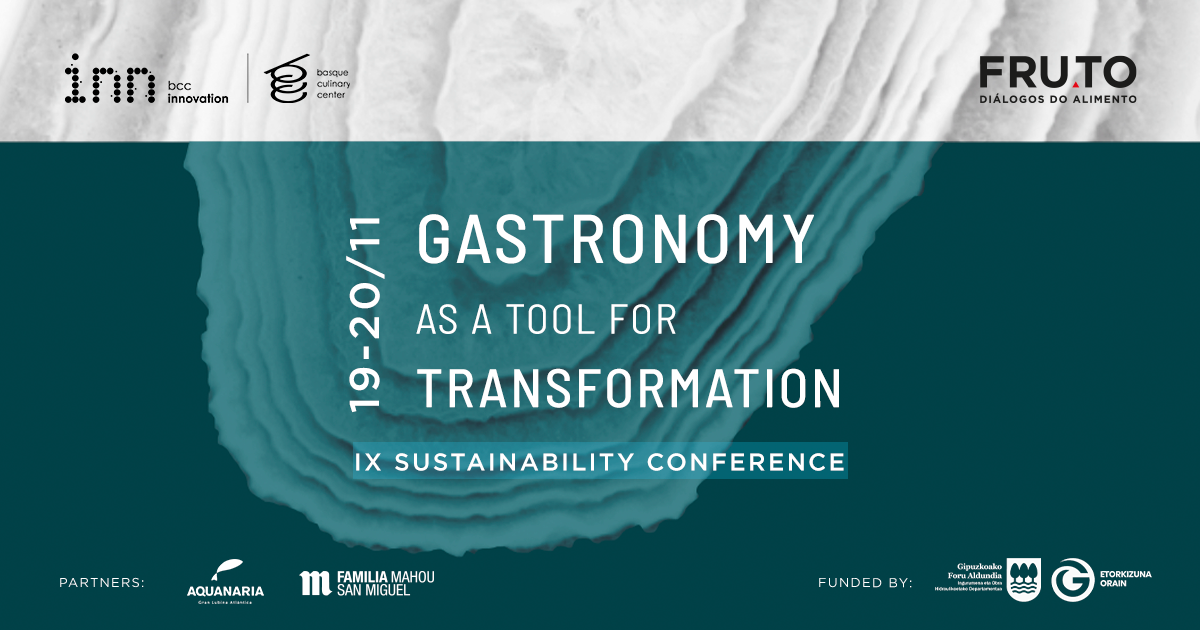Este miércoles, 16 de diciembre, tuvo lugar la reunión del Patronato de Basque Culinary Center, máximo órgano de la institución, en un formato híbrido presencial/digital en el que participaron un total de 15 personas, entre las que se encontraban Joxe Mari Aizega (BCC), Pedro Subijana (Akelarre), Elena Arzak (Restaurante Arzak), Eneko Atxa (Azurmendi), Bittor Oroz (Gobierno Vasco), Vicente Atxa (Mondragon Unibertsitatea), Javier Larrañaga (Diputación Foral de Gipuzkoa) y Diego Guerrero (DSTAgE). Entre los temas tratados en este encuentro anual destaca el balance de 2020, un año exigente, donde la digitalización, la innovación y el trabajo en equipo han resultado vitales para avanzar. Además, el encuentro también ha servido para presentar algunas de las novedades 2021, año en el que la Facultad de Ciencias Gastronómicas, adscrita a Mondragon Unibertsitatea, cumple su décimo aniversario.
Tras un año lleno de cambios entre los que destaca el rediseño del modelo educativo: más práctico, personalizado, interdisciplinar y orientado a desarrollar todas las competencias de un profesional de la gastronomía del futuro, Basque Culinary Center da otro paso adelante en su plan formativo y presenta el lanzamiento de dos nuevos másteres en 2021: el Máster en Comunicación Gastronómica y el Máster Universitario en Formación del profesorado de Gastronomía; dos nuevos cursos de especialización: de Cocina Farm To Table y de especialización de Perfeccionamiento de técnicas culinarias, este último 100% online; y un catalogo de más de 40 nuevos cursos para profesionales. Nuevas formaciones que se suman al Grado en Gastronomía y Artes Culinarias, al programa de Doctorado, a los 8 másteres que se imparten en la Facultad y a los cursos que se imparten actualmente.
Además, cabe destacar que durante este 2020 Basque Culinary Center ha afrontado los retos anuales con nuevas soluciones y una notable evolución: El reacondicionamiento de los espacios, un innovador entorno digital, nuevas iniciativas como el espacio “Gastronomía 360º” y proyectos como la “Huerta”, “Gastronomy Shapers” han sido algunas de las novedades que se han implantado en la Facultad.
Tal y como apunta Joxe Mari Aizega, Director General de Baque Culinary Center, “2020 ha exigido lo mejor de nosotros como colectivo. Hemos demostrado que gracias a la creatividad y la pasión de las personas que formamos Basque Culinary Center somos capaces de hacer frente a cualquier reto y además, fortalecer los vínculos con nuestra comunidad. Ahora, también hemos pensado en el futuro y en cómo podemos seguir completando la formación de los profesionales de la gastronomía del mañana y esperamos poder celebrar nuestro 10 aniversario y seguir consolidando el poder de la gastronomía bajo nuestra filosofía: la pasión, la innovación, la transformación social y la excelencia”.
Nuevos Másteres y Cursos
Un año más, Basque Culinary Center seguirá ampliando su oferta formativa para nutrir las necesidades de los y las profesionales del sector.
En primer lugar, el Máster en Comunicación Gastronómica abrirá el periodo de matriculación en enero de 2021 y dará comienzo en octubre. El objetivo general del máster será formar a los futuros profesionales de la comunicación gastronómica que se encargarán de la conceptualización, producción y gestión de contenidos, principalmente a través de canales digitales, tanto para medios informativos como para restaurantes, empresas, instituciones públicas y otras organizaciones e iniciativas de emprendimiento.
Por otro lado, el Máster Universitario en Formación del Profesorado de Gastronomía, que abrirá su matrícula en mayo del próximo año, arrancará en enero de 2022 con la idea de formar docentes profesionales de la gastronomía. Tanto la Facultad De Humanidades y Ciencias De La Educación como la Facultad de Ciencias Gastronómicas, ambas adscritas a Mondragon Unibertsitatea ofrecerán una sólida formación pedagógica y didáctica específica que capacitará a los y las estudiantes del máster a dar respuesta a los retos futuros, como profesionales de la educación y la investigación del ámbito de la gastronomía.
Además, el centro también impartirá dos nuevos cursos de especialización. El en Cocina Farm To Table, centrado en una de las tendencias que con más fuerza ha irrumpido en el panorama gastronómico será un curso único que combinará la formación culinaria con la horticultura, enseñando tendencias y técnicas de cocina y realizar un acercamiento a los sistemas sostenibles y Zero Waste. Por otro lado, el nuevo curso de especialización de Perfeccionamiento de técnicas culinarias, se ofrecerá por primera vez 100% online.
Finalmente, Basque Culinary Center renovará su amplia oferta formativa dirigida a profesionales del sector, lanzando un nuevo catálogo en enero de 2021, con más de 40 cursos, entre los que destacan, como novedad, “Oferta Gastronómica adaptada al Delivery”, “La Quinta Gama” y “Metodología para diseñar Nuevas Experiencias”.
10º aniversario
La Fundación Basque Culinary Center, con sede en Donostia -San Sebastián, nació como un ambicioso proyecto de formación, investigación e innovación, destinado al desarrollo del sector gastronómico, con una clara vocación internacional y bajo la idea de relacionar la gastronomía con la gestión, la ciencia y otras disciplinas.
El 26 de septiembre de 2011 Basque Culinary Center, la primera Facultad de Ciencias Gastronómicas, abría sus puertas a la primera promoción del Grado en Gastronomía y Artes Culinarias. Así comenzó la andadura de una institución académica pionera a nivel mundial.
Tras diez años de actividad, Basque Culinary Center es un proyecto singular, innovador, y con una clara vocación de ser referencia en el sector del conocimiento y también en la promoción de la gastronomía. Desarrolla 3 actividades principales: la Facultad de Ciencias Gastronómicas, adscrita a la Universidad Mondragon Unibertsitatea, el Centro de Investigación e Innovación en Alimentación y Gastronomía (BCC Innovation) y una plataforma de eventos y promoción de la gastronomía.
La Fundación fue y sigue siendo un magnífico ejemplo de cooperación público-privada, que se materializa en el patronato que está constituido por entidades del sector del conocimiento, instituciones públicas, empresas privadas y cocineros/as.
El programa de actividades del 10º aniversario de Basque Culinary Center se desplegará entre enero y septiembre. Se están diseñando diferentes iniciativas y contenidos que permitirán celebrar y reconocer los 10 años de camino de Basque Culinary Center con los diferentes integrantes de la comunidad: estudiantes, alumni, personas de Basque Culinary Center, empresas colaboradoras, instituciones, chefs e integrantes del sector gastronómico, etc.
El Patronato de Basque Culinary Center
El Patronato es el máximo órgano de la Fundación Basque Culinary Center y se encuentra formado por nueve de los chefs más renombrados del País Vasco entre los que se encuentran: Juan Mari y Elena Arzak, Pedro Subijana, Martin Berasategui, Andoni Luis Aduriz, Carlos Arguiñano, Eneko Atxa, Hilario Arbelaitz y Diego Guerrero. Además de instituciones como Gobierno Vasco, Diputación Foral de Gipuzkoa, Ayuntamiento de Donostia-San Sebastián, entidades como Azti-Tecnalia y Mondragon Unibertsitatea. También forman parte del patronato empresas como Eroski, Martiko, Covap, Mahou-San Miguel y Fagor.

